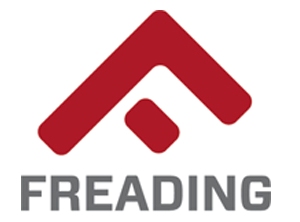 On April 12, Library Ideas will launch Freading 2.0, an upgrade of its existing pay-per-circ ebook platform. This will include several new features, such as MARC records supplied by OCLC for all of the 30,000 titles now offered by the service, along with an updated website with enhanced search functions, and new navigation tools that will help users find books grouped by category. This summer, Freading will also begin offering foreign language ebooks, beginning with 2,000 titles in Spanish.
On April 12, Library Ideas will launch Freading 2.0, an upgrade of its existing pay-per-circ ebook platform. This will include several new features, such as MARC records supplied by OCLC for all of the 30,000 titles now offered by the service, along with an updated website with enhanced search functions, and new navigation tools that will help users find books grouped by category. This summer, Freading will also begin offering foreign language ebooks, beginning with 2,000 titles in Spanish.
The upgrade incorporates input and critiques received from both libraries and end-users since the platform’s official launch in January 2012, according to Library Ideas co-founder Brian Downing. Notably, since Freading offers access to all of its available titles to all libraries that use the service, discovery has been an especially important consideration.
The Freading 2.0 launch is about connecting patrons with titles available on the platform as fast as possible, Downing said. “The redesign of the homepage improves searching, browsing, and [includes] editorial content on the front page. Things like best biographies, best histories, best kids books…. It’s creating those portals for the user with a distinct content preference.”
More than 850 publishers are now providing content, including Open Road Integrated Media, Workman Publishing, Sourcebooks, Sterling Publishing, and Kensington Publishing.
The largest publishing houses thus far have been a different story. Referring to the Big Six, he noted that “the bigger the company it is, the more cautious the approach.” Freading is still in talks with two of the Big Six, communication has been spotty with two others, and the remaining two have said no. Downing remains positive that deals can be reached with at least some of these companies.
“They say, on average, that it takes two years to get a major media deal, and that’s been our experience with our major media deals,” he said. “It’ll happen. I’m very confident.”
Drilling down
Downing also noted that the platform update features topical categories like seasonal and holiday ebooks, or ebooks related to current events, such as content about the papacy during the recent papal election.
“Right now it’s tax time, and we have a bunch of books on doing your taxes,” he explained. “So, now a library doesn’t have to buy [those types of ebook titles] just to use in that one-month window.”
The new system was developed using aggregated usage data to determine Freading’s most popular content, as well as research conducted with library customers and book review sites. Input from publishers during their marketing campaigns for specific titles will also be considered.
Freading offers library patrons unlimited access to all ebooks in its catalog in a manner somewhat similar to Library Ideas’ downloadable MP3 music service, Freegal. Libraries allot patrons an allowance of pay per circ “tokens” which they can then spend downloading any Freading ebook. New releases published less than six months ago cost four tokens, or two dollars. Ebooks that are between six months to two years old cost two tokens, or one dollar, and ebooks older than two years cost one token, or 50 cents.
Unlike Freegal, patrons do not keep the content after downloading. Checkouts last a period of two weeks before Adobe DRM software automatically removes the ebook from a device, although one two-week renewal is generally available for free. Libraries never “own” any of the ebooks via license agreements, and access is dependent on a continued contract, but Freading does have the advantage of allowing unlimited simultaneous use for all of its titles.
With negligible upfront costs, the service has proven popular. A little more than one year after launch, 1,500 library systems large and small in the U.S., Canada, and Australia now use the service, including state and provincial arrangements with Virginia, Kansas, Alberta, and Wyoming.



An intriguing idea. As libraries, publishers, authors, etc. dance around new costing strategies of loaning ebooks, a pay-per-circ platform like this one makes some sense — depending upon the charge. Assuming end-users don’t mind paying to read an ebook when they normally read the print version for free, what does this model do for the whole relationship between patron and libraries? Does this eventually make the library just a ever less-relevant middleman?
Hi, Mark
How are you?
Just to clarify. End-users (library patrons) do not have to pay for either of these services. With Freading, libraries purchase the online “tokens” and then allot patrons a balance that they can spend each week. This token system prevents a handful of heavy users from spending the library’s entire budget for music downloads every week, for example.
With Freading, most libraries limit patrons to four or five tokens per week, which patrons can use to check out one new ebook, four older titles, or two titles between 6-months and a year old, etc. But the library is footing the bill.
So it’s much like a typical limit on how many print books a patron might be allowed to check out each week? That makes sense. This model keeps a library fully engaged in the process and patrons reading books from the library.
Matt, thank you for the clarification. I’m not in the library business, but am a supporter of libraries. My young daughter is one of those avid readers who needs a check-out limit. We both want see libraries continue to thrive through this digital transition.
Hi, I have not seen the roll out of the new site, the MARC records for Freading, nor any information about it except here. Has Freading 2.0 been delayed?